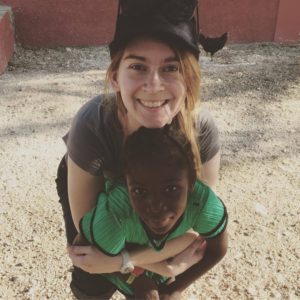JORDAN PLACE, CEO & PRESIDENT
 “Why Haiti?” This is a question I often hear. There are countless homeless veterans, for example, and other groups of individuals in need right here in the United States. It is natural to believe that we must take care of our own people before assisting others. From a certain perspective, this argument makes sense. It can seem wasteful and as if our priorities are out of line if we are leaving the country to help others without helping “our own”. However, I’ve often found these questioners to be more interested in critiquing my desire to serve than in actually helping homeless veterans or others in need. This is how I have generally responded.
“Why Haiti?” This is a question I often hear. There are countless homeless veterans, for example, and other groups of individuals in need right here in the United States. It is natural to believe that we must take care of our own people before assisting others. From a certain perspective, this argument makes sense. It can seem wasteful and as if our priorities are out of line if we are leaving the country to help others without helping “our own”. However, I’ve often found these questioners to be more interested in critiquing my desire to serve than in actually helping homeless veterans or others in need. This is how I have generally responded.
First, I explain that understand where they are coming from, but because I’m a Christian, I believe that Americans and Haitians are equally valuable as human beings. One group should never be seen as more or less important than the other. The kingdom of heaven has no geographical boundaries. As a follower of Jesus, I am first and foremost a citizen of heaven. I love living in America and all of the privileges that come with it, but my allegiance to God supersedes any allegiance to my country. His people are my people, and His people include every person on the planet. By serving in Haiti, I am very much “helping my own.”
Second, we should not make light of any human suffering. Helping to alleviate the suffering of homeless veterans, for example, is important. This is an issue worth caring about, not simply a talking point to critique of someone’s choice to serve other people groups. Some of us are called to serve homeless U.S. veterans. Some of us are called to serve homeless Haitians. Both of these callings are equally honorable and important. As for me, I believe I was called to the people of Haiti. My choice to serve the Haitian people is an act of obedience to God to serve people He loves. For me, to stay and serve only at home in the US would be to disobey.
This article is an opinion piece. The views and opinions expressed are those of the author, and do not necessarily reflect the views and opinions of Project Piti Pami or any of our partners.
